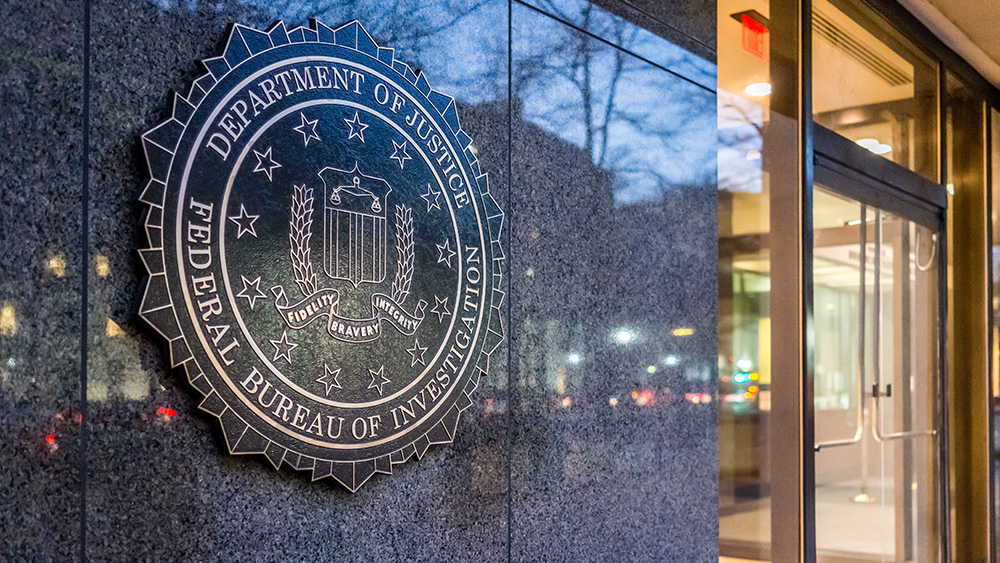Congress approves extension of U.S. government’s warrantless surveillance powers despite opposition
12/20/2023 / By Belle Carter

Despite opposition from senators and House representatives, Congress approved the short-term extension of the U.S. government’s warrantless surveillance powers on Thursday, Dec. 14. The defense policy bill included a measure that extends Section 702 of the Foreign Intelligence Surveillance Act (FISA) until mid-April. The paper is already headed to President Joe Biden’s office for approval.
FISA allows the government to spy on foreigners located abroad, but Americans who communicate with those under surveillance have their information swept up in the searches, prompting agreement that reauthorization of the powers must come with reforms that limit documented abuse of the tool by the Federal Bureau of Investigation (FBI). While the National Defense Authorization Act’s (NDAA’s) inclusion of FISA avoids an end-of-the-year expiration of the powers, it also extends an ongoing battle over whether the government should get a warrant before reviewing information it’s already collected about Americans.
Several conservative lawmakers voiced frustration over its inclusion in a must-pass bill. They argued that the FISA issue should be a standalone bill and not part of the NDAA. Naturally, the U.S. intelligence community praised its passage as “necessary” to national security. “The fact of the matter is what’s being stated is it is impossible to oppose the NDAA because we put a pay raise in it or because we put something in there that is seemingly so important that we have to ignore the critical destruction of our civil liberties by adding FISA extension right on the top of it without doing the forms necessary to protect the American people,” Rep. Chip Roy (R-TX) said.
Sen. Mike Lee (R-UT) raised the alarm on the FISA issue by posting on X, “The Senate just voted to waive the point of order against the NDAA. 35 of us opposed the motion to waive. We needed only 41 to prevent this outcome, and to remove FISA 702 from the NDAA. This is not good. The House should #StopTheNDAA.”
The Senate just voted to waive the point of order against the NDAA.
35 of us opposed the motion to waive.
We needed only 41 to prevent this outcome, and to remove FISA 702 from the NDAA.
This is not good.
The House should #StopTheNDAA.
— Mike Lee (@BasedMikeLee) December 13, 2023
House Rep Thomas Massie (R-KY) had this to say: “It was close in the Senate, but now it’s up to the House tomorrow to stop the reauthorization of warrantless spying on Americans.”
It was close in the Senate, but now it’s up to the House tomorrow to stop the reauthorization of warrantless spying on Americans. Thank you for your valiant efforts @BasedMikeLee and @RandPaul. https://t.co/lyocRCRO9U
— Thomas Massie (@RepThomasMassie) December 14, 2023
Privacy rights groups also blasted the decision. “It’s incredibly disheartening that Congress decided to extend an easily abused law with zero of the reforms needed to protect all of our privacy. As long as Section 702 is being used by the government to spy on Americans without a warrant, we will continue to fight this unconstitutional law and work with Congress to strengthen our Fourth Amendment protections against government surveillance,” the American Civil Liberties Union said in a statement. (Related: The White House goes rogue: Secret surveillance program breaks all the laws.)
Naturally, the intelligence community lauded the extension. “We are relieved and grateful that Congress recognizes that allowing Section 702 to lapse even temporarily would be catastrophic to U.S. national security and the safety of the American people. We cannot afford to be blinded to the many threats we face from foreign adversaries, including Iran and China, as well as terrorist organizations like Hamas and ISIS,” Matthew Olsen, assistant attorney general for the National Security Division, said in a statement. “We urge Congress to act swiftly in the new year to reauthorize this critical intelligence tool.”
Why extend a bill with a history of abuse?
National Security Advisor Jake Sullivan and Deputy National Security Advisor Jon Finer wrote in July that intelligence obtained under Section 702 made the United States understand and respond to threats posed by the People’s Republic of China, rally the world against Russian atrocities in Ukraine, locate and eliminate terrorists intent on causing harm to America, enable the disruption of fentanyl trafficking, mitigate the Colonial Pipeline ransomware attack and much more. According to the Office of the Director of National Intelligence, almost 60 percent of Biden’s daily briefings in 2022 contained information obtained by the National Security Agency (NSA) using the bill.
However, critics of the current law have long pointed out that vast amounts of data on U.S. citizens are also hoovered up by intelligence agencies, with more than 50 House lawmakers from both parties saying in a November letter to congressional leadership that the law “has a history of abuse.”
“While the law only allows collection of communications from non-U.S. citizens who don’t reside on U.S. soil, those communications may sometimes be with U.S. citizens. While Section 702 requires the collection of data on U.S. citizens and residents to be minimized, it allows for some exceptions. If, for example, a foreign terrorist indicated that a United States person was a key member of an ongoing terrorist plot, this information would be appropriately shared to allow the FBI to take further investigative steps,” the intelligence community said in a briefing.
However, solons and advocacy groups emphasized that the power has been repeatedly misused. Law enforcement agencies have used Section 702 authority to conduct searches on American protesters and activists, journalists, a sitting U.S. congressman and a senator.
“Americans know they don’t have to sacrifice their liberty to have security,” said Democratic Sen. Ron Wyden in a statement. “I cannot support reauthorizing warrantless surveillance of Americans’ communications without significant reforms and improvements.”
The latest updates about government efforts on spying Americans can be found at Surveillance.news.
Sources for this article include:
Submit a correction >>
Tagged Under:
abuse of power, big government, Chip Roy, Congress, conspiracy, deep state, defense policy bill, dod, fisa, Fourth Amendment, insanity, Mike Lee, National Defense Authorization Act, national security, NDAA, outrage, privacy watch, spy gate, StopTheNDAA, surveillance, thomas massie, traitors, Tyranny, warrantless spying, warrantless surveillance
This article may contain statements that reflect the opinion of the author
RECENT NEWS & ARTICLES
COPYRIGHT © 2017 SPYGATENEWS.COM
All content posted on this site is protected under Free Speech. SpygateNews.com is not responsible for content written by contributing authors. The information on this site is provided for educational and entertainment purposes only. It is not intended as a substitute for professional advice of any kind. SpygateNews.com assumes no responsibility for the use or misuse of this material. All trademarks, registered trademarks and service marks mentioned on this site are the property of their respective owners.


















